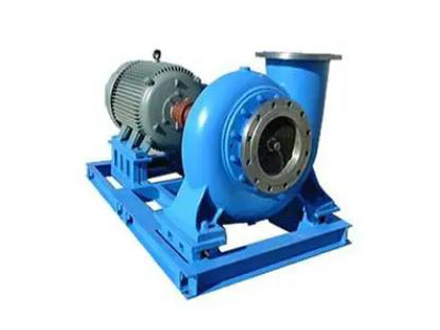Applications of Corrosion-Resistant Pulp Pumps
2024-07-17
A corrosion-resistant pulp pump is a specialized industrial pump designed to handle corrosive liquids and slurries, particularly in the pulp and paper industry where corrosive chemicals and materials are common. Here’s an overview of what a corrosion-resistant pulp pump entails, its applications, features, and considerations for selection:
Applications of Corrosion-Resistant Pulp Pumps
1. Pulp and Paper Industry:
- Chemical Handling: Used for transporting corrosive chemicals, acids, alkalis, and abrasive slurries involved in pulp processing and paper production.
- Fiber Processing: Handles fibrous materials, pulp slurries, and waste materials encountered in pulp bleaching, washing, and refining processes.
2. Chemical Processing:
- Aggressive Liquids: Suitable for pumping aggressive chemicals, solvents, and corrosive liquids in chemical manufacturing and processing plants.
- Acid Transfer: Handles acids and bases used in various industrial applications where resistance to corrosion is critical.
3. Mining and Minerals:
- Abrasive Slurries: Capable of handling abrasive slurries containing minerals, ores, and tailings in mining operations.
4. Wastewater Treatment:
- Corrosive Effluents: Used in wastewater treatment facilities to pump corrosive effluents, acids, and alkalis during treatment processes.
Features of Corrosion-Resistant Pulp Pumps
1. Materials of Construction:
- Corrosion-Resistant Alloys: Typically made from materials such as stainless steel (e.g., duplex, super duplex), titanium, or high-performance alloys (e.g., Hastelloy) to withstand corrosive environments.
- Coatings: Some pumps may feature specialized coatings or linings (e.g., rubber, ceramic) on internal surfaces to enhance corrosion resistance.
2. Design and Construction:
- Heavy-Duty Construction: Robust design to withstand the abrasive nature of pulp slurries and corrosive chemicals.
- Sealing Mechanisms: Includes advanced sealing technologies (e.g., mechanical seals, gland packing) to prevent leakage and ensure reliability.
3. Performance Characteristics:
- High Efficiency: Designed for high efficiency and reliability in continuous operation under demanding conditions.
- Variable Speed Control: Some models offer variable speed drives (VSD) for energy savings and precise control over flow rates.
4. Maintenance and Serviceability:
- Ease of Maintenance: Designed for easy access to components and quick maintenance to minimize downtime.
- Replaceable Parts: Availability of replaceable wear parts (e.g., impellers, casings) to extend pump life and reduce operating costs.
5. Safety and Compliance:
- Certifications: Complies with industry standards and regulations for safety, environmental protection, and quality assurance (e.g., ISO, API standards).
- Safety Features: Includes features such as overload protection, temperature monitoring, and emergency shutdown systems for safe operation.
Considerations for Selecting a Corrosion-Resistant Pulp Pump
1. Fluid Characteristics:
- Chemical Composition: Identify the specific chemicals, pH levels, temperature ranges, and abrasive properties of the liquids or slurries to be pumped.
- Viscosity and Solid Content: Consider the viscosity and concentration of solids in the fluid to select a pump that can handle these characteristics effectively.
2. Operating Conditions:
- Flow Rate and Pressure Requirements: Determine the required flow rate (capacity) and discharge pressure based on operational needs and system design.
- Temperature Range: Ensure the pump is capable of operating within the required temperature range of the fluid being pumped.
3. Installation and Integration:
- Space Constraints: Consider space limitations and installation requirements in the plant or facility.
- Compatibility: Ensure compatibility with existing piping systems, control systems, and other equipment for seamless integration.
4. Lifecycle Costs:
- Initial Investment vs. Operating Costs: Evaluate the total lifecycle costs, including initial purchase price, maintenance, energy consumption, and replacement parts.
- Energy Efficiency: Choose a pump with high efficiency ratings to minimize energy consumption and operational costs over time.
5. Manufacturer and Support:
- Reputation and Support: Select a reputable manufacturer known for quality products, technical expertise, and reliable customer support.
- Warranty and Service: Review warranty terms, availability of spare parts, and after-sales service options to ensure ongoing support and maintenance.
Popular Manufacturers
- ITT Goulds Pumps
- KSB
- Sulzer
- Weir Minerals
- Grundfos
Conclusion
A corrosion-resistant pulp pump is essential for industries handling corrosive liquids and slurries, such as pulp and paper, chemical processing, mining, and wastewater treatment. By selecting a pump that meets specific operational requirements, material compatibility, and reliability standards, industries can ensure efficient and safe handling of corrosive fluids while minimizing downtime and maintenance costs.



